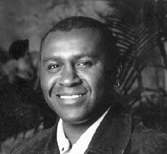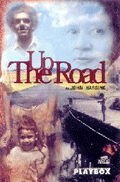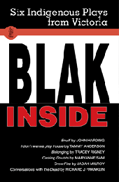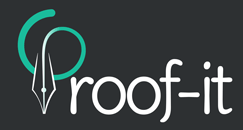John Harding – August 26 2018
 John is a descendant of the KuKu Yalanji tribe and the Mer people. He has been an actor, writer and director and has been writing poetry since the age of 14. John’s other plays include Second Helping, No Parking and The Dirty Mile, a history of Indigenous Fitzroy. His radio credits include Land Rights, Rally and Blackman and Sobbin and his television credits include Lift Off, Blackout, The Masters, and the Indigenous current affairs program, ICAM. John has worked as a ministerial adviser for the Victorian Department of Aboriginal Affairs and has been Senior Project Officer for the Aboriginal Education Department. He co-founded the Ilbijerri Aboriginal and Torres Strait Islander Theatre Co-op in Melbourne and has been National Aboriginal Employment Co-ordinator for the Australian Film Commission, Assistant Director for the 1989 National Black Playwrights’ Conference and Artistic Director of the 1996 Nambundah Festival. In 2002 John was the first Indigenous recipient of The ANU Nugget Coombes Fellowship.
John is a descendant of the KuKu Yalanji tribe and the Mer people. He has been an actor, writer and director and has been writing poetry since the age of 14. John’s other plays include Second Helping, No Parking and The Dirty Mile, a history of Indigenous Fitzroy. His radio credits include Land Rights, Rally and Blackman and Sobbin and his television credits include Lift Off, Blackout, The Masters, and the Indigenous current affairs program, ICAM. John has worked as a ministerial adviser for the Victorian Department of Aboriginal Affairs and has been Senior Project Officer for the Aboriginal Education Department. He co-founded the Ilbijerri Aboriginal and Torres Strait Islander Theatre Co-op in Melbourne and has been National Aboriginal Employment Co-ordinator for the Australian Film Commission, Assistant Director for the 1989 National Black Playwrights’ Conference and Artistic Director of the 1996 Nambundah Festival. In 2002 John was the first Indigenous recipient of The ANU Nugget Coombes Fellowship.
 Up the Road
Up the Road
Currency Press, 1997; ISBN 9780868195087
Full length; 3 female, 3 male
Up the Road is set in the remote Aboriginal community of Flat Creek, where life is pretty uncomplicated – that is until Ian Sampson, Canberra bureaucrat, returns home. High spirited, irreverent and moving, Up the Road is a celebration of life, love and family. The play was shortlisted for the 1997 Victorian Premier’s Literary Awards – Louis Esson Prize for Drama, and won John the 1997 The Kate Challis RAKA Award, the 1997 Australian Human Rights Awards – Arts Literature Award, and the Deadly Award for Literature 2006
Enuff (published in Blak Inside)
Currency Press, 2002; ISBN 9780868196626
Full length; 2 female, 5 male
A violent uprising is planned for Reconciliation Day in a future Australia. Will retribution or forgiveness prevail?
‘Harding’s intensely incisive Enuff has managed to captivate critical reviewers by virtue of the subtle approach to a searing contemporary issue: racial prejudice and institutionalized bigotry. By depicting a fictionalized scenario in which Australia’s minority groups, predominately Aboriginal and Indigenous cultures along with people of African descent, make the revolutionary choice to take up arms against an oppressive government, Harding compels any audience member viewing Enuff to consider his or her own complicity in the continued societal subjugation of Indigenous people.’ – www.bartleby.com/essay/
